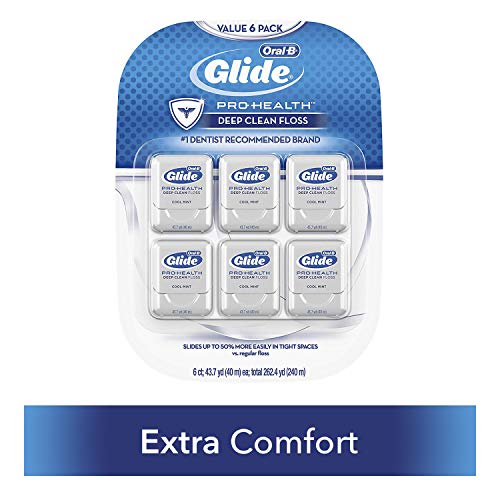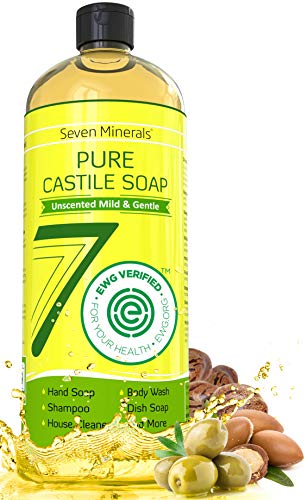If you wear a retainer, it is going to be sitting in your mouth quite often. So, it is important to deep clean a retainer as much and as often as you clean your mouth. They can accumulate tartar, plaque, and bacteria quickly if you don’t clean them.

People usually wear a retainer after the positioning of their teeth has been set with braces. Retainers help the muscles and tissues in the mouth keep the teeth in its new position. So, you might need to keep them on full time or for a considerable amount of time.
Today, we will show you different ways you can keep your retainers clean and healthy the safe way.
Table of Contents
Types of Retainers
How you effectively clean it has a lot to do with the type of retainer it is. So, before we dive into the process, let us take a look at some of the types of retainers you might be using.
- Clear plastic retainers – They are also called clear aligners, Vivera, or Essix. As the name implies, they’re pretty much invisible. They slip over your teeth and can easily be pulled off too.
- Bonded or Fixed retainers – This type is often attached to the lower front teeth. They can also be called permanent retainers because they are fixed for several months and sometimes years. They are the go-to types if the teeth are at risk of shifting.
- Hawley retainers – This type is easy to clean as it is removable. They are made of acrylic to fit in your mouth and use a wire to hold the retainer in place.
Now that we know the types there are, let’s get on with how you can deep clean a retainer.
How to Clean a Retainer
Plastic and Hawley retainers
These 2 types of retainers are removable so you can clean them every day and the same way. The following steps will guide you to clean Hawley and clear retainers:
- Clean the retainer as soon as you take it out of your mouth. It is best to clean it while it is still wet to prevent debris from hardening.
- Use a mild soap and cotton swab. The swab will allow you to reach into corners and crevices to get out every dirt. According to Mark Burhenne, DDS, if you brush a retainer whether with toothpaste or not, it can cause divots that can hold onto bacteria.
- Rinse with warm or cold water. Put the retainer under a running tap to get the soap and other residues out.
You could also drop this highly effective retainer cleaning tablet in a cup of water along with your retainer and let it sit. It kills 99% of odor causing bacteria and leaves a minty freshness.
Fixed retainers
 It might seem easier cleaning this type of retainer since you can brush it along with your teeth. However, that is not enough. You will need to floss it on a daily basis. Here’s how.
It might seem easier cleaning this type of retainer since you can brush it along with your teeth. However, that is not enough. You will need to floss it on a daily basis. Here’s how.
- Get a floss. This Dr. Tung’s Smart Floss is a great option; it is even naturally flavored. Thread it between the two front lower teeth.
- Move it up and down under the wire. With one end in your hand and the other in the threader, gently work it all the way down to the gum line.
- Use a mirror. If you are new to flossing, you might want to do this in front of a mirror. That way, you can see what you’re doing and make adjustments.
- Repeat for each tooth. Floss for each of the retainer teeth till you’re satisfied they are clean.
Clean a Retainer with Castile Soap
Click here to get the castile soap
The main reason people use retainer cleaning tablets is the freshness it gives their retainers. However, most of them contain persulfate which is not an ideal ingredient.
However, the main ingredients in a castile soap such as this one from Quinn’s are olive oil and argan. It does not contain chemicals and will clean your retainer and keep it fresh.
All you need to do is add a few squirts in a cup of water and submerge your retainer in it.
Vinegar to Deep Clean a Retainer
If you have been reading our pro tips for a while, you will know by now that vinegar has disinfectant properties. This makes it a great cleaning product for your retainer.
- Mix equal parts of water and white vinegar in a container. Make sure the container is deep enough so the mixture can cover the entire retainer.
- Let it sit for 30 minutes. The vinegar needs time to clean the retainer and disinfect it.
- Rinse thoroughly. After the time has passed, rinse the retainer with cold water. You know vinegar can have a smell and taste. So, you have to give it a real rinse out.
Deep Clean a Retainer with Baking Soda
This is another natural ingredient you can use to clean a retainer without fear of damaging it.
- Dissolve a tablespoon of baking soda in a cup of water. Make sure the cup is such that the retainer submerges in the mixture.
- Leave it for 30 minutes. Give it time for dirt and debris to properly clean.
- Rinse with cold water. Do not use hot or warm water as it can melt or warp the retainer.
What You Should Not Clean a Retainer With
A lot of people clean a retainer with hydrogen peroxide. Some use it instead or along with vinegar. You should never clean a retainer with hydrogen peroxide, says Dr. Mark Burhenne.
It can cause free radical reactions which is what makes us age. That’s not all, hydrogen peroxide can kill the bacteria in our mouths. That might sound like a good thing but some bacteria should be present in the mouth for proper oral function and to maintain its microbiome.
Bleach, alcohol, or other chemicals are not good choices to clean a retainer either. Also don’t use a dishwasher, mouthwash, UV sanitizer, or hot water to clean your retainer.
The methods we have shown you are good options to help you clean your retainer and keep it healthy at all times.
- KILLS 99.99% OF ODOR CAUSING BACTERIA: Our supreme anti-bacterial cleaning tablets are laboratory tested to kill 99% of the odor-causing bacteria in every corner of any oral appliance
- OPTIMAL RESULTS: M3 cleaning tablets are the most effective and safest solution on the market. Restore your appliance clarity through the removal of discoloration, stains, plaque, odors, and tartar
- ALL DENTAL APPLIANCES: Our tablets are perfect for dentures, retainers, aligners, invisalign, mouth guards, night guards, snore guards, sport, TMJ devices and all other removable dental appliances
- EASY TO USE: Just drop one tablet into warm tap water and soak your dental appliance for 10 minutes. Quickly restore any dental appliance in just minutes!
- PREMIUM QUALITY INGREDIENTS: M3 Naturals prides itself on sourcing every ingredient from the purest forms. We are committed to offering the highest-quality beauty products at an affordable price.
Conclusion
It is important to clean your retainer as you do your mouth. Quite a number of the cleaning products out there are not suitable as they throw off the balance of your oral microbiome.
The methods above are great for cleaning a retainer. You can use any of them to clean your retainer and keep it fresh. We hope this post has given you the information you’re looking for. Thank you for your time.
